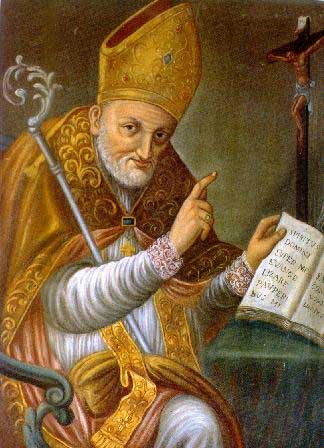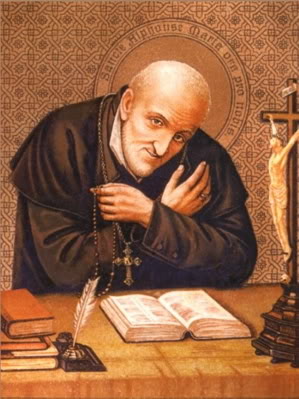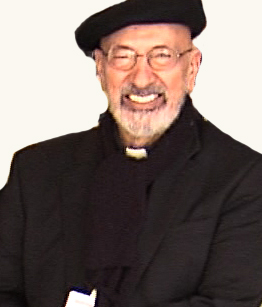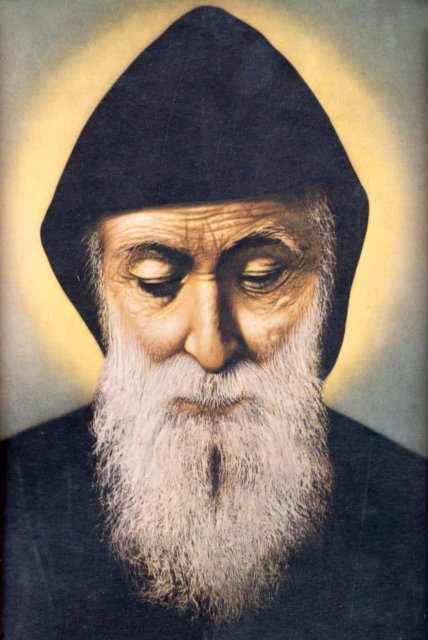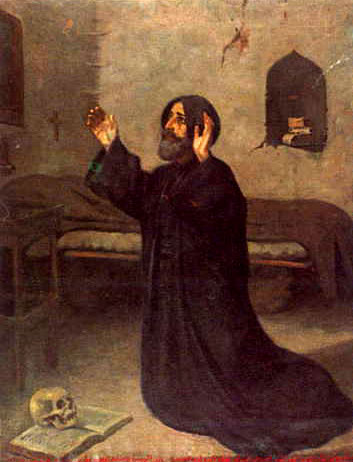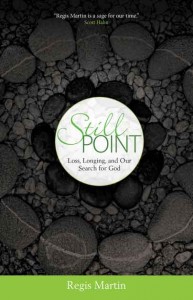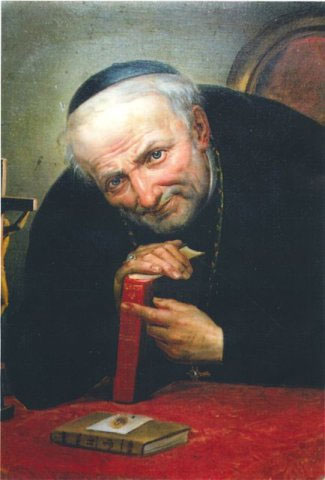[powerpress] Day 6
From the writings of St. Ignatius of Loyola: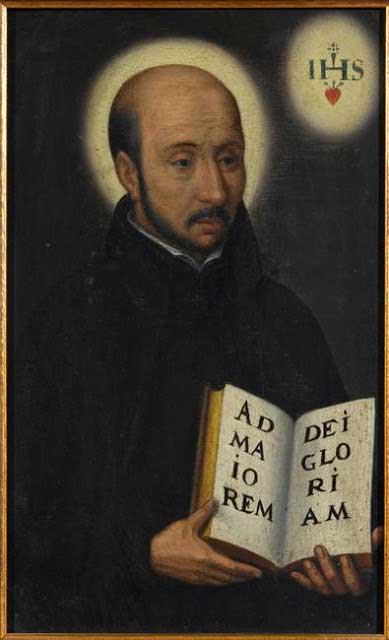
If we desire to live in honor and to be esteemed by our neighbors, then we shall never be solidly rooted in God our Lord, and it will be impossible for us to remain undisturbed when insults come our way [Ep. 1:86].
If we find that we are without the patience to endure insults from others we, then, have greater reason to complain, not because of those who injure us, but because of our own sensuality and carnal inclinations, and because we are not as mortified or dead to the world as we should be. These people are offering us opportunities for gaining a treasure greater than anyone can win in this life, and riches more numerous than anyone can accumulate in this world [Ep. 1:86-87].
Our Father….
With St. Ignatius we pray:
Soul of Christ, sanctify me.
Body of Christ, save me. Blood of Christ, inebriate me.
Water from the side of Christ, wash me.
Passion of Christ, strengthen me.
O Good Jesus, hear me.
Within Thy wounds hide me.
Suffer me not to be separated from thee.
From the malignant enemy defend me.
In the hour of my death call me.
And bid me come unto Thee,
That with all Thy saints,
I may praise thee Forever and ever.
Amen.
St. Ignatius of Loyola, pray for us
Tags: catholic, catholic podcast, catholic prayer, cathollc spirituality
This entry was posted on Sunday, July 27th, 2014 at 9:18 am
You can follow any responses to this entry through the RSS 2.0 feed.
St. Alphonsus you have said:
If you wish to strengthen your confidence in God still more, often recall the loving way in which He has acted toward you, and how mercifully He has tried to bring you out of your sinful life, to break your attachment to the things of earth and draw you to His love. With such thoughts in your mind, now that you have resolved to love Him and please Him with all your strength, your only fear should be to fear God too much and to place too little confidence in Him.
GLORIOUS Saint Alphonsus, Bishop and Doctor of the Church, devoted servant of our Lord and loving child of Mary, I invoke you as a Saint in heaven. I give myself to your protection that you may always be my protector and my guide in the way of holiness and salvation. Aid me in observing the duties of my state of life. Obtain for me great purity of heart and a fervent love of the interior life after your own example.
Great lover of the Blessed Sacrament and the Passion of Jesus Christ, teach me to love Holy Mass and Holy Communion as the source of grace and holiness. Give me a tender devotion to the Passion of my Redeemer.
Promoter of the truth of Christ in your preaching and writing, give me a greater knowledge and appreciation of the Divine truths.
Gentle father of the poor and sinners, help me to imitate your charity toward others in word and deed.
Consoler of the suffering, help me to bear my daily cross patiently in imita tion of your own patience in your long and painful illness and to resign myself to the Will of God.
Good Shepherd of the flock of Christ, obtain for me the grace of being a true child of Holy Mother Church.
Saint Alphonsus, I humbly implore your powerful intercession for obtaining from the Heart of Jesus all the graces necessary for my spiritual and temporal welfare. I recommend to you in particular this favor: (Mention your request).
I have great confidence in your prayers. I earnestly trust that if it is God’s holy Will, my petition will be granted through your intercession for me at the throne of God.
Saint Alphonsus, pray for me and for those I love. I beg of you, by your love for Jesus and Mary, do not abandon us in our needs. May we experience the peace and joy of your holy death. Amen.
Prayer
HEAVENLY Father, You continually build up Your Church by the lives of Your Saints. Give us grace to follow Saint Alphonsus in his loving concern for the salvation of people and so come to share his reward in heaven. Walking in the footsteps of this devoted servant of Yours, may we be consumed with zeal for souls and attain the reward he enjoys in Your Kingdom. We ask this through Christ our Lord.
Amen.
Tags: catholic, catholic podcast, catholic prayer, cathollc spirituality
This entry was posted on Saturday, July 26th, 2014 at 10:12 am
You can follow any responses to this entry through the RSS 2.0 feed.
[powerpress] Day 5
From the writings of St. Ignatius of Loyola: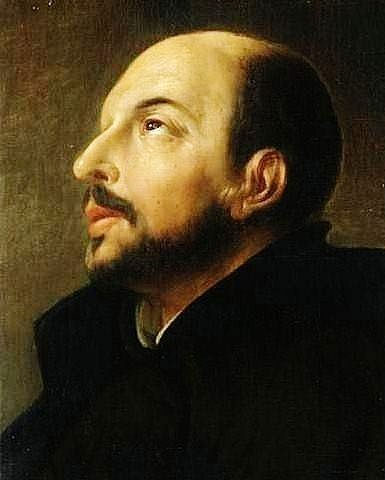
We should praise all the laws of the Church, keeping our minds ever ready to seek reasons to defend them and not to oppose them [Spir. Exer., “Rules for Thinking with the Church”].
I must remind you to frequent the sacraments, to read spiritual books, and to pray with as much recollection as you possibly can. Every day set aside some time so that the soul will not be without its food and, thus, you will not be induced to complain like the one who said “My heart has withered because I have forgotten to eat my bread” (Psalm 102:4) [Ep. 6:524].
Our Father….
With St. Ignatius we pray:
Soul of Christ, sanctify me.
Body of Christ, save me. Blood of Christ, inebriate me.
Water from the side of Christ, wash me.
Passion of Christ, strengthen me.
O Good Jesus, hear me.
Within Thy wounds hide me.
Suffer me not to be separated from thee.
From the malignant enemy defend me.
In the hour of my death call me.
And bid me come unto Thee,
That with all Thy saints,
I may praise thee Forever and ever.
Amen.
St. Ignatius of Loyola, pray for us
Tags: catholic, catholic podcast, catholic prayer, cathollc spirituality
This entry was posted on Saturday, July 26th, 2014 at 8:36 am
You can follow any responses to this entry through the RSS 2.0 feed.
Dr. Matthew Bunson discusses the life, times and teachings of St. Anslem pt 1
- Born: 1033, Aosta, Italy
- Died: April 21, 1109, Canterbury, United Kingdom
- Full name:Â Anselmo d’Aosta
- Books: Proslogion, More
From Vatican.va, an excerpt from the teachings of Pope Benedict XVI General Audience 2009
He is also known as Anselm of Bec and Anselm of Canterbury because of the cities with which he was associated. Who is this figure to whom three places, distant from one another and located in three different nations Italy, France, England feel particularly bound? A monk with an intense spiritual life, an excellent teacher of the young, a theologian with an extraordinary capacity for speculation, a wise man of governance and an intransigent defender of libertas Ecclesiae, of the Church’s freedom, Anselm is one of the eminent figures of the Middle Ages who was able to harmonize all these qualities, thanks to the profound mystical experience that always guided his thought and his action.
St Anselm was born in 1033 (or at the beginning of 1034) in Aosta, the first child of a noble family. His father was a coarse man dedicated to the pleasures of life who squandered his possessions. On the other hand, Anselm’s mother was a profoundly religious woman of high moral standing (cf. Eadmer, Vita Sancti Anselmi, PL 159, col. 49). It was she, his mother, who saw to the first human and religious formation of her son whom she subsequently entrusted to the Benedictines at a priory in Aosta. Anselm, who since childhood as his biographer recounts imagined that the good Lord dwelled among the towering, snow-capped peaks of the Alps, dreamed one night that he had been invited to this splendid kingdom by God himself, who had a long and affable conversation with him and then gave him to eat “a very white bread roll” (ibid., col. 51). This dream left him with the conviction that he was called to carry out a lofty mission. At the age of 15, he asked to be admitted to the Benedictine Order but his father brought the full force of his authority to bear against him and did not even give way when his son, seriously ill and feeling close to death, begged for the religious habit as a supreme comfort. After his recovery and the premature death of his mother, Anselm went through a period of moral dissipation. He neglected his studies and, consumed by earthly passions, grew deaf to God’s call. He left home and began to wander through France in search of new experiences. Three years later, having arrived in Normandy, he went to the Benedictine Abbey of Bec, attracted by the fame of Lanfranc of Pavia, the Prior. For him this was a providential meeting, crucial to the rest of his life. Under Lanfranc’s guidance Anselm energetically resumed his studies and it was not long before he became not only the favourite pupil but also the teacher’s confidante. His monastic vocation was rekindled and, after an attentive evaluation, at the age of 27 he entered the monastic order and was ordained a priest. Ascesis and study unfolded new horizons before him, enabling him to rediscover at a far higher level the same familiarity with God which he had had as a child.
When Lanfranc became Abbot of Caen in 1063, Anselm, after barely three years of monastic life, was named Prior of the Monastery of Bec and teacher of the cloister school, showing his gifts as a refined educator. He was not keen on authoritarian methods; he compared young people to small plants that develop better if they are not enclosed in greenhouses and granted them a “healthy” freedom. He was very demanding with himself and with others in monastic observance, but rather than imposing his discipline he strove to have it followed by persuasion. Upon the death of Abbot Herluin, the founder of the Abbey of Bec, Anselm was unanimously elected to succeed him; it was February 1079. In the meantime numerous monks had been summoned to Canterbury to bring to their brethren on the other side of the Channel the renewal that was being brought about on the continent. Their work was so well received that Lanfranc of Pavia, Abbot of Caen, became the new Archbishop of Canterbury. He asked Anselm to spend a certain period with him in order to instruct the monks and to help him in the difficult plight in which his ecclesiastical community had been left after the Norman conquest. Anselm’s stay turned out to be very fruitful; he won such popularity and esteem that when Lanfranc died he was chosen to succeed him in the archiepiscopal See of Canterbury. He received his solemn episcopal consecration in December 1093.
For more visit Vatican.va
Dr. Matthew Bunson, Senior Fellow of the St. Paul Center for Biblical Theology, is one of the United States’ leading authorities on the papacy and the Church.
His books include: The Encyclopedia of Catholic History; The Encyclopedia of Saints; Papal Wisdom; All Shall Be Well; Encyclopedia of the Roman Empire; and The Angelic Doctor: The Life and World of St. Thomas Aquinas; The Pope Encyclopedia; We Have a Pope! Benedict XVI, the first Catholic biography of the Holy Father in the English language; the Encyclopedia of U.S. Catholic History; Pope Francis. His also the editor of OSV’s “The Catholic Answer” magazine.
Tags: catholic, catholic podcast, catholic prayer, cathollc spirituality
This entry was posted on Friday, July 25th, 2014 at 6:18 am
You can follow any responses to this entry through the RSS 2.0 feed.
The Sunday, Sunday, Sunday Podcast is a reflection on the upcoming Sunday Mass readings presented by LifeTeen.com and hosted by Mark Hart.
Sunday Readings from the USCCB
Reading 1 Â 1 KGS 3:5, 7-12
Responsorial Psalm   PS 119:57, 72, 76-77, 127-128, 129-130
Reading 2 Â ROM 8:28-30
Gospel   MT 13:44-52
Jesus said to his disciples:
“The kingdom of heaven is like a treasure buried in a field,
which a person finds and hides again,
and out of joy goes and sells all that he has and buys that field.
Again, the kingdom of heaven is like a merchant
searching for fine pearls.
When he finds a pearl of great price,
he goes and sells all that he has and buys it.
Again, the kingdom of heaven is like a net thrown into the sea,
which collects fish of every kind.
When it is full they haul it ashore
and sit down to put what is good into buckets.
What is bad they throw away.
Thus it will be at the end of the age.
The angels will go out and separate the wicked from the righteous
and throw them into the fiery furnace,
where there will be wailing and grinding of teeth.
“Do you understand all these things?â€
They answered, “Yes.â€
And he replied,
“Then every scribe who has been instructed in the kingdom of heaven
is like the head of a household
who brings from his storeroom both the new and the old.â€
Tags: catholic, catholic podcast, catholic prayer, cathollc spirituality
This entry was posted on Friday, July 25th, 2014 at 5:42 am
You can follow any responses to this entry through the RSS 2.0 feed.
Day 3
St. Alphonsus you have said:
“The more a person loves God, the more reason he has to hope in Him. This hope produces in the Saints an unutterable peace, which they preserve even in adversity, because as they love God, and know how beautiful He is to those who love Him, they place all their confidence and find all their repose in Him alone.â€
GLORIOUS Saint Alphonsus, Bishop and Doctor of the Church, devoted servant of our Lord and loving child of Mary, I invoke you as a Saint in heaven. I give myself to your protection that you may always be  my protector and my guide in the way of holiness and salvation. Aid me in observing the duties of my state of life. Obtain for me great purity of heart and a fervent love of the interior life after your own example.
Great lover of the Blessed Sacrament and the Passion of Jesus Christ, teach me to love Holy Mass and Holy Communion as the source of grace and holiness. Give me a tender devotion to the Passion of my Redeemer.
Promoter of the truth of Christ in your preaching and writing, give me a greater knowledge and appreciation of the Divine truths.
Gentle father of the poor and sinners, help me to imitate your charity toward others in word and deed.
Consoler of the suffering, help me to bear my daily cross patiently in imita tion of your own patience in your long and painful illness and to resign myself to the Will of God.
Good Shepherd of the flock of Christ, obtain for me the grace of being a true child of Holy Mother Church.
Saint Alphonsus, I humbly implore your powerful intercession for obtaining from the Heart of Jesus all the graces necessary for my spiritual and temporal welfare. I recommend to you in particular this favor: (Mention your request).
I have great confidence in your prayers. I earnestly trust that if it is God’s holy Will, my petition will be granted through your intercession for me at the throne of God.
Saint Alphonsus, pray for me and for those I love. I beg of you, by your love for Jesus and Mary, do not abandon us in our needs. May we experience the peace and joy of your holy death. Amen.
Prayer
HEAVENLY Father, You continually build up Your Church by the lives of Your Saints. Give us grace to follow Saint Alphonsus in his loving concern for the salvation of people and so come to share his reward in heaven. Walking in the footsteps of this devoted servant of Yours, may we be consumed with zeal for souls and attain the reward he enjoys in Your Kingdom. We ask this through Christ our Lord.
Amen.
Tags: catholic, catholic podcast, catholic prayer, cathollc spirituality
This entry was posted on Friday, July 25th, 2014 at 5:19 am
You can follow any responses to this entry through the RSS 2.0 feed.
[powerpress]
Day 4
From the writings of St. Ignatius of Loyola: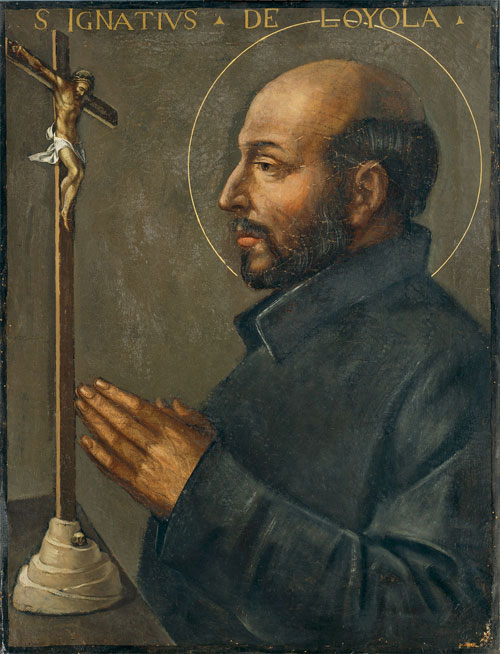
I desire for you the joy and full consolation of soul that I desire for myself, and I sympathize with you in your trials. . .but I consider this a very special gift of God our Lord for He is providing you with an occasion to practice patience, as well as faith and hope in Him [Ep. 6:161].
In the life which is eternal and without end God will reward your patience with indescribable joy and glory; there will be no trials, sadness, or discomfort—for there are none of these in heaven—but only the fulfillment of every joy and happiness [Ep. 6:161].
Our Father….
With St. Ignatius we pray:
Soul of Christ, sanctify me.
Body of Christ, save me.
Blood of Christ, inebriate me.
Water from the side of Christ, wash me.
Passion of Christ, strengthen me.
O Good Jesus, hear me.
Within Thy wounds hide me.
Suffer me not to be separated from thee.
From the malignant enemy defend me.
In the hour of my death call me.
And bid me come unto Thee,
That with all Thy saints,
I may praise thee
Forever and ever.
Amen.
St. Ignatius of Loyola, pray for us
Tags: catholic, catholic podcast, catholic prayer, cathollc spirituality
This entry was posted on Friday, July 25th, 2014 at 5:11 am
You can follow any responses to this entry through the RSS 2.0 feed.
Episode 1 –  What is Christian Apologetics? Who was St. Thomas Aquinas, his life, his times, and his contribution. What is “theology”? What is the “Summa”?
What is Christian Apologetics? Who was St. Thomas Aquinas, his life, his times, and his contribution. What is “theology”? What is the “Summa”?
[powerpress]
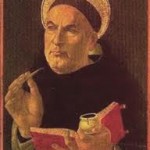 Question 1. article 1Â The nature and extent of sacred doctrine
Question 1. article 1Â The nature and extent of sacred doctrine
Whether, besides philosophy, any further doctrine is required?
Objection 1: It seems that, besides philosophical science, we have no need of any further knowledge. For man should not seek to know what is above reason: “Seek not the things that are too high for thee” (Ecclus. 3:22). But whatever is not above reason is fully treated of in philosophical science. Therefore any other knowledge besides philosophical science is superfluous.
Objection 2: Further, knowledge can be concerned only with being, for nothing can be known, save what is true; and all that is, is true. But everything that is, is treated of in philosophical science—even God Himself; so that there is a part of philosophy called theology, or the divine science, as Aristotle has proved (Metaph. vi). Therefore, besides philosophical science, there is no need of any further knowledge.
On the contrary, It is written (2 Tim. 3:16): “All Scripture, inspired of God is profitable to teach, to reprove, to correct, to instruct in justice.” Now Scripture, inspired of God, is no part of philosophical science, which has been built up by human reason. Therefore it is useful that besides philosophical science, there should be other knowledge, i.e. inspired of God.
I answer that, It was necessary for man’s salvation that there should be a knowledge revealed by God besides philosophical science built up by human reason. Firstly, indeed, because man is directed to God, as to an end that surpasses the grasp of his reason: “The eye hath not seen, O God, besides Thee, what things Thou hast prepared for them that wait for Thee” (Is. 66:4). But the end must first be known by men who are to direct their thoughts and actions to the end. Hence it was necessary for the salvation of man that certain truths which exceed human reason should be made known to him by divine revelation. Even as regards those truths about God which human reason could have discovered, it was necessary that man should be taught by a divine revelation; because the truth about God such as reason could discover, would only be known by a few, and that after a long time, and with the admixture of many errors. Whereas man’s whole salvation, which is in God, depends upon the knowledge of this truth. Therefore, in order that the salvation of men might be brought about more fitly and more surely, it was necessary that they should be taught divine truths by divine revelation. It was therefore necessary that besides philosophical science built up by reason, there should be a sacred science learned through revelation.
Reply to Objection 1: Although those things which are beyond man’s knowledge may not be sought for by man through his reason, nevertheless, once they are revealed by God, they must be accepted by faith. Hence the sacred text continues, “For many things are shown to thee above the understanding of man” (Ecclus. 3:25). And in this, the sacred science consists.
Reply to Objection 2: Sciences are differentiated according to the various means through which knowledge is obtained. For the astronomer and the physicist both may prove the same conclusion: that the earth, for instance, is round: the astronomer by means of mathematics (i.e. abstracting from matter), but the physicist by means of matter itself. Hence there is no reason why those things which may be learned from philosophical science, so far as they can be known by natural reason, may not also be taught us by another science so far as they fall within revelation. Hence theology included in sacred doctrine differs in kind from that theology which is part of philosophy.
For an online version of St. Thomas Aquinas’ “Summa” click here
“Christian Apologetics with Dr. R. R. Reno” explores numerous facets of faith and reason in the life of the Church and the world. Grounded on the work of giants, such as St. Thomas Aquinas, St. Bonaventure, Blessed John Newman, soon-to-be Blessed John Paul II, G. K. Chesterton, Blaise Paschal and Stephen Barr, Dr. Reno helps us to open our minds to make the journey to our hearts.
R. R. Reno is the editor at First Things: A Journal of Religion, Culture, and Public Life, and Professor of Theology, currently on leave from Creighton University. His theological work has been published in many academic journals. Essays and opinion pieces on religion, public life, contemporary culture, and current events have appeared in Commentary, and the Washington Post. In Fighting the Noonday Devil Reno suggests that putting ourselves at the disposal of what is real is what trains us for true piety. His other recent books include Genesis: Brazos Theological Commentary on the Bible and Sanctified Vision: An Introduction to Early Christian Interpretation of the Bible.
Tags: catholic, catholic podcast, catholic prayer, cathollc spirituality
This entry was posted on Thursday, July 24th, 2014 at 6:33 am
You can follow any responses to this entry through the RSS 2.0 feed.
Msgr. Esseff shares with us the great leagacy of prayer and reform left to us by St Charbel Makhluf  St Nimatullah Youssef Kassab Al-Hardini (1808-1858) powerful saints for our times.
Reading 1 Â JER 2:1-3, 7-8, 12-13
This word of the LORD came to me:
Go, cry out this message for Jerusalem to hear!
I remember the devotion of your youth,
how you loved me as a bride,
Following me in the desert,
in a land unsown.
Sacred to the LORD was Israel,
the first fruits of his harvest;
Should any presume to partake of them,
evil would befall them, says the LORD.
When I brought you into the garden land
to eat its goodly fruits,
You entered and defiled my land,
you made my heritage loathsome.
The priests asked not,
“Where is the LORD?â€
Those who dealt with the law knew me not:
the shepherds rebelled against me.
The prophets prophesied by Baal,
and went after useless idols.
Be amazed at this, O heavens,
and shudder with sheer horror, says the LORD.
Two evils have my people done:
they have forsaken me, the source of living waters;
They have dug themselves cisterns,
broken cisterns, that hold no water.
Tags: catholic, catholic podcast, catholic prayer, cathollc spirituality
This entry was posted on Thursday, July 24th, 2014 at 6:32 am
You can follow any responses to this entry through the RSS 2.0 feed.
Episode 3 – Heresy and Orthodoxy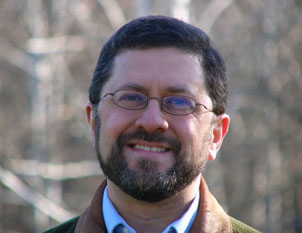
[powerpress]
The Resilient Church with Mike Aquilina, offers a fascinating look at the trials and triumphs of the Catholic Church over the past two thousand years. Fast-paced sketches of critical periods in church history give readers perspective on the challenges faced by the church today. Mike Aquilina does not shrink from the realities of the past, including badly behaved leaders and those who betrayed the Lord. Yet he also leaves us all with well-founded hope for the future: God remains faithful in every circumstance and fulfills his promise to remain with his church always.
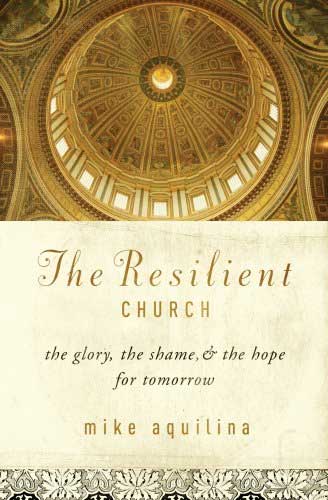 Pick up a copy of Mke’s book. You’ll find so much more and invaluable references and resoources, as well
Pick up a copy of Mke’s book. You’ll find so much more and invaluable references and resoources, as well
Also visit Mike’s “Discerning Hearts†page for more audio downloads and information!
Tags: catholic, catholic podcast, catholic prayer, cathollc spirituality
This entry was posted on Thursday, July 24th, 2014 at 6:22 am
You can follow any responses to this entry through the RSS 2.0 feed.
Dr. Regis Martin, as Dr. Scott Hahn has said, is “a sage for our times”.  By presenting the truths of our faith with such beauty, he 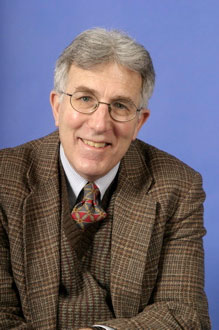 evangelizes directly the heart.  Dr. Martin is a joy to read.
evangelizes directly the heart. Â Dr. Martin is a joy to read.
I didn’t want “Still Point:  Loss, Longing and Our Search for God” to end.  That is the mark of a great book for me…it is one I desire to return to over and over again.  He offers the rich insights of the saints,  poets, and philosophers, to direct us to the “still point”   where  “one encounters the mingling of past and future, grit and grace, man and God.”  Wonderful, enchanting, poignant and compelling…don’t miss.
[powerpress]
You can find the book here
“With the eloquence and poignancy of a poet, Regis Martin gets to the heart of life’s most urgent questions, forging a link between our ‘desperate desires’ and our “homesickness for God” in this profound and beautiful book.”–Rev. Peter John Cameron, O.P. , Editor-in-Chief, Magnificat
“Regis Martin is one of Catholicism’s trustworthy guides to the spiritual life in all its dimensions–including, as he demonstrates here, its hard and challenging dimensions.”–George Weigel, Distinguished Senior Fellow, Ethics and Public Policy Center
“Regis Martin’s moving reflection on our death-haunted and restless search for God is both beautiful and bracing. Drawing on the profound imaginings of our poets and our theologians, Martin’s meditation takes place on the lip of the abyss as he shows us Who it is our hearts so restlessly long for.” —Gregory Erlandson, President, Our Sunday Visitor Publishing
Tags: catholic, catholic podcast, catholic prayer, cathollc spirituality
This entry was posted on Thursday, July 24th, 2014 at 6:21 am
You can follow any responses to this entry through the RSS 2.0 feed.
[powerpress]
St. Alphonsus you have said:
“Acquire the habit of speaking to God as if you were alone with Him, familiarly and with confidence and love, as to the dearest and most loving of friends. Speak to Him often of your business, your plans, your troubles, your fears— of everything that concerns you. Converse with Him confidently and frankly; for God is not wont to speak to a soul that does not speak to Him.â€
GLORIOUS Saint Alphonsus, Bishop and Doctor of the Church, devoted servant of our Lord and loving child of Mary, I invoke you as a Saint in heaven. I give myself to your protection that you may always be  my protector and my guide in the way of holiness and salvation. Aid me in observing the duties of my state of life. Obtain for me great purity of heart and a fervent love of the interior life after your own example.
Great lover of the Blessed Sacrament and the Passion of Jesus Christ, teach me to love Holy Mass and Holy Communion as the source of grace and holiness. Give me a tender devotion to the Passion of my Redeemer.
Promoter of the truth of Christ in your preaching and writing, give me a greater knowledge and appreciation of the Divine truths.
Gentle father of the poor and sinners, help me to imitate your charity toward others in word and deed.
Consoler of the suffering, help me to bear my daily cross patiently in imita tion of your own patience in your long and painful illness and to resign myself to the Will of God.
Good Shepherd of the flock of Christ, obtain for me the grace of being a true child of Holy Mother Church.
Saint Alphonsus, I humbly implore your powerful intercession for obtaining from the Heart of Jesus all the graces necessary for my spiritual and temporal welfare. I recommend to you in particular this favor: (Mention your request).
I have great confidence in your prayers. I earnestly trust that if it is God’s holy Will, my petition will be granted through your intercession for me at the throne of God.
Saint Alphonsus, pray for me and for those I love. I beg of you, by your love for Jesus and Mary, do not abandon us in our needs. May we experience the peace and joy of your holy death. Amen.
Prayer
HEAVENLY Father, You continually build up Your Church by the lives of Your Saints. Give us grace to follow Saint Alphonsus in his loving concern for the salvation of people and so come to share his reward in heaven. Walking in the footsteps of this devoted servant of Yours, may we be consumed with zeal for souls and attain the reward he enjoys in Your Kingdom. We ask this through Christ our Lord.
Amen.
Tags: catholic, catholic podcast, catholic prayer, cathollc spirituality
This entry was posted on Thursday, July 24th, 2014 at 6:07 am
You can follow any responses to this entry through the RSS 2.0 feed.
[powerpress]
Day 3
From the writings of St. Ignatius of Loyola: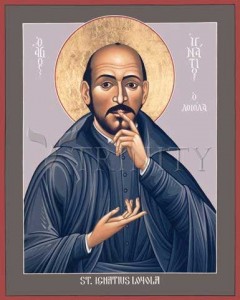
The peace of our Lord is something interior, and it brings with it all the other gifts and graces necessary for salvation and eternal life. This peace makes us love our neighbor for the love of our Creator and Lord, and because of this same love we observe all the commandments of the law, as St. Paul says: “He who loves his neighbor has fulfilled the law” (Romans 13:8). He has fulfilled the law because he loves his Creator and Lord and loves his neighbor for his Lord’s sake [Ep. 1:162].
Our Father….
With St. Ignatius we pray:
Soul of Christ, sanctify me.
Body of Christ, save me.
Blood of Christ, inebriate me.
Water from the side of Christ, wash me.
Passion of Christ, strengthen me.
O Good Jesus, hear me.
Within Thy wounds hide me.
Suffer me not to be separated from thee.
From the malignant enemy defend me.
In the hour of my death call me.
And bid me come unto Thee,
That with all Thy saints,
I may praise thee
Forever and ever.
Amen.
St. Ignatius of Loyola, pray for us
Tags: catholic, catholic podcast, catholic prayer, cathollc spirituality
This entry was posted on Thursday, July 24th, 2014 at 5:16 am
You can follow any responses to this entry through the RSS 2.0 feed.
[powerpress]
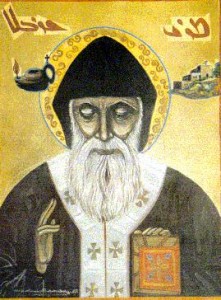 For the text of the Chaplet and other prayers visit the Discerning Hearts St. Charbel Page
For the text of the Chaplet and other prayers visit the Discerning Hearts St. Charbel Page
Memorial: 24 December
Son of a mule driver. Raised by an uncle who opposed the boy’s youthful piety. The boy’s favorite book was Thomas a Kempis’ The Imitation of Christ. At age 23 he snuck away to join the Baladite monastery of Saint Maron at Annaya where he took the name Charbel in memory of a 2nd century martyr. Professed his solemn vows in 1853. Ordained in 1859, becoming a heiromonk. He lived as a model monk, but dreamed of living like the ancient desert fathers. Hermit from 1875 until his death 23 years later, living on the bare minimums of everything. Gained a reputation for holiness and was much sought for counsel and blessing. He had a great personal devotion to the Blessed 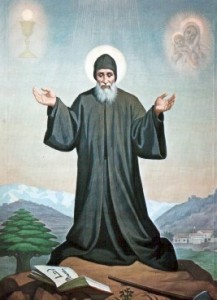 Sacrament, and was known to levitate during his prayers. Briefly paralyzed for unknown reasons just before his death on Christmas eve, 1898.
Sacrament, and was known to levitate during his prayers. Briefly paralyzed for unknown reasons just before his death on Christmas eve, 1898.
“…a hermit of the Lebanese mountain is inscribed in the number of the blessed, a new eminent member of monastic sanctity is enriching, by his example and his intercession, the entire Christian people. May he make us understand, in a world largely fascinated by wealth and comfort, the paramount value of poverty, penance and asceticism, to liberate the soul in its ascent to God…” Pope Paul VI, October 9, 1977
Born: 8 May 1828 at Beka-Kafra, Lebanon as Joseph Zaroun Makhlouf
Died: 24 December 1898 at Annaya of natural causes
Beatified: 1965 by Pope Paul VI
Canonized: 9 October 1977 by Pope Paul VI
Tags: catholic, catholic podcast, catholic prayer, cathollc spirituality, pope paul vi, St. Charbel
This entry was posted on Thursday, July 24th, 2014 at 12:29 am
You can follow any responses to this entry through the RSS 2.0 feed.
Episode 17Â -The Way of Mystery: The Eucharist and Moral Living 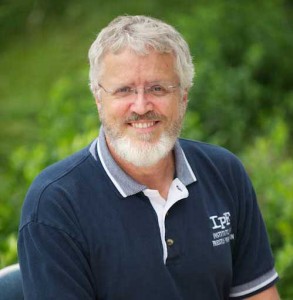
Mystical experiences and consoling prayer. Prayer is earnestly desired, because it is something we delight in. Also the prayer that will spontaneously occur. Another type of experience is the aspect of the sacramental encounter.
[powerpress]
For more episodes in “The Way of Mystery” Series click here
Deacon James Keating, PhD, the director of Theological Formation for the Institute for Priestly Formation, located at Creighton University, in Omaha, is making available to â€Discerning Hearts†and all who listen, his series of programs entitled “The Way of Mysteryâ€.
 The Vatican II documents remind us that the spiritual journey is not made in a vacuum, that God has chosen to save us, not individually, but as The People of God. The Eucharist must help Christians to make their choices by discerning out of Christ’s paschal mystery. For this process to take place, however, Christians must first understand how the Eucharist puts them in touch with Christ’s passion, death, and resurrection, and what concrete implications being in touch with this mystery has for their daily lives.
The Vatican II documents remind us that the spiritual journey is not made in a vacuum, that God has chosen to save us, not individually, but as The People of God. The Eucharist must help Christians to make their choices by discerning out of Christ’s paschal mystery. For this process to take place, however, Christians must first understand how the Eucharist puts them in touch with Christ’s passion, death, and resurrection, and what concrete implications being in touch with this mystery has for their daily lives.
For more information on the “Institute of Priestly Formation†and for other material available by Deacon Keating, just click here
Don’t forget to pickup a copy of “Communion with Christ†, it is one of the best audio sets on prayer…ever!
Check out Deacon Keating’s “Discerning Heart†page
Tags: catholic, catholic podcast, catholic prayer, cathollc spirituality
This entry was posted on Wednesday, July 23rd, 2014 at 3:35 pm
You can follow any responses to this entry through the RSS 2.0 feed.

